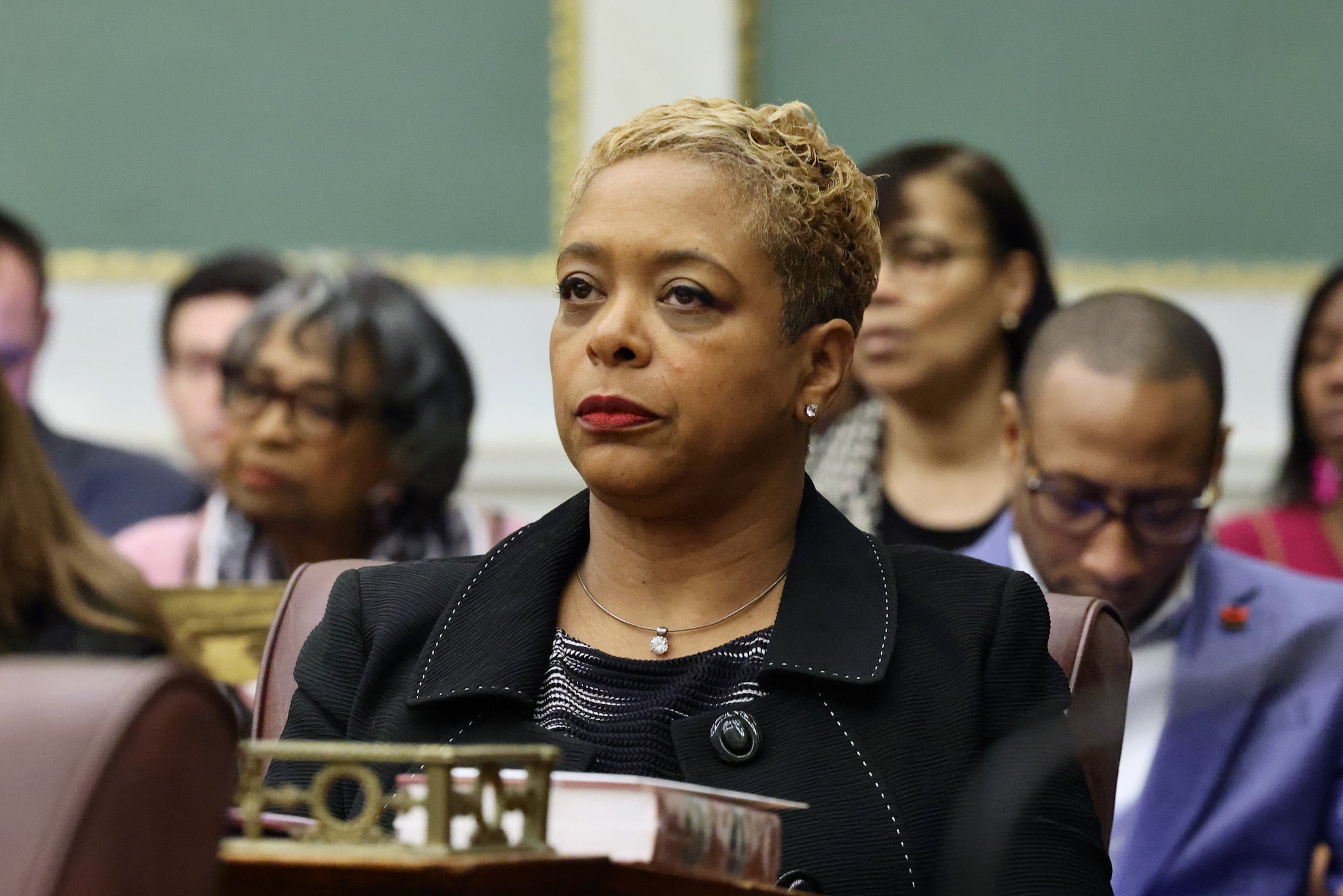
Lawmakers pressed the administration on whether the terms of the CBA — the content and dollar amount — were negotiable now that it was up for consideration in Council. Community stakeholders did not have a seat at the table while the agreement was being fashioned.
“Is there any appetite from the admin to renegotiate some of these things to put us in a position to be able to find something that is a little more beneficial to the city of Philadelphia than what we have in place right now?” said Councilmember Isaiah Thomas.
“We stand by the CBA that we introduced,” said Tiffany Thurman, Parker’s chief of staff. She later added that “we respect the process.”
Council members may seek more funding to support nearby communities, particularly Chinatown, where residents and business owners say the arena poses an existential threat to the neighborhood.
At the moment, about half of the funding will go to nearby communities. That includes $1.6 million for a business disruption fund, which will provide grants to help small businesses during the construction of the arena, which would start in 2028 after a third of the Fashion District mall is demolished.
Echoing some of her colleagues, Bass called the amount inadequate to “keep businesses afloat.” And she urged the administration to include more dedicated funding in the CBA.
“Let’s not start out shorting businesses that need these funds,” said Bass.
The current total is partially a reflection of the fact that streets are not expected to close while the arena is constructed, said Sophie Bryan, chief policy officer for the administration. She added that the total is meant to support about 40 businesses that sit closest to the proposed site.
The administration also pointed to the $14 million that will go toward funding an arena special services district, saying that some of that funding may be used to further help businesses negatively impacted by the arena’s construction.
“Mayor Parker is committed to ensuring Chinatown’s continued vitality and position as a treasured cultural community for long-term residents, new residents and visitors from near and far,” said Thurman.
A focus on workforce diversity
Lawmakers also had a number of questions about the implementation and oversight of the administration’s economic opportunity plan for the arena, which is centered around workforce diversity and giving minorities, women and disabled people the chance to benefit from the arena during construction and once the facility opens.
The EOP will have an oversight committee that will be required to track and report on the progress being made on a variety of related goals. Officials assured council members that the plan would not pit one racial group against another, and that it would be a model for the city moving forward — not just a one-off deal for the arena.
“We are confident that this EOP will deliver results with its focus on both on the numeric participation goals it sets and the terms and conditions it includes to enable the city to track and enforce compliance across the construction period and during the arena’s ongoing operation,” said City Solicitor Renee Garcia.
The hearings get underway as arena opponents continue to fight to defeat the development, which they argue will dismantle Chinatown, particularly the hundreds of small businesses in the area. Critics argue those businesses, and others near the arena, will be hurt by traffic congestion created by games and events, as well as competition from arena vendors.
Before the hearing got underway, dozens of people gathered outside City Hall to voice their concerns about the project during an informal hearing set up outside the building.
That includes concerns about traffic impeding ambulances making their way to the emergency room at nearby Jefferson Hospital, an issue administration maintained on Tuesday will not be a problem.
“Health care is one of the most vital services in our community, yet the proposed arena threatens to jeopardize access for thousands of Philadelphians. It’s unthinkable that the city is considering a project that would do so much to harm a patients’ ability to reach critical care in an emergency,” said Olivia Gong, a medical student in the city.
The hearings are scheduled to wrap up Dec. 3.
